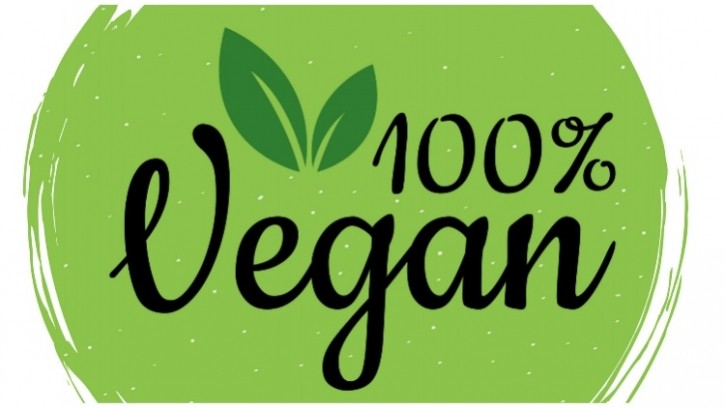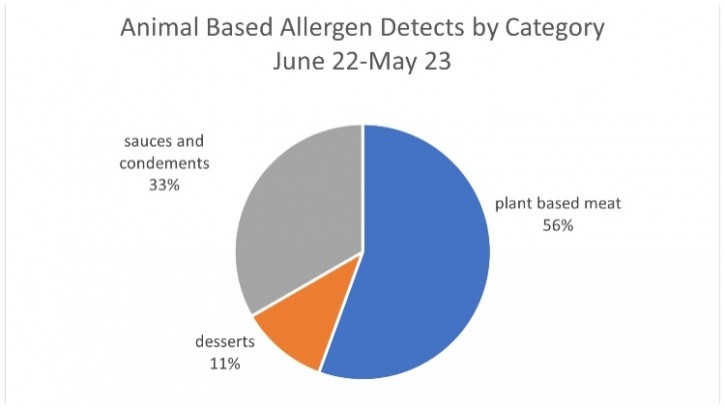Food Forensics
Vegan lab testing – what to expect

With one to two percent of the UK population claiming to be vegan and many more reducing consumptions of meat for environmental, health or economic reasons, the number of products with vegan claims have, in turn, increased dramatically over the last 10 years.
In the last 12 months, reported animal allergen detections accounted for 47% of all allergens detected in the vegan product category. Products reporting such allergens were (perhaps unsurprisingly) more complex products, with multiple ingredients.
Many of these vegan products are produced in factories which also comprise non-vegan lines and include multiple raw materials, which consequently increases risk.
How can I substantiate my vegan claim?
So, considering this uptick of cross-contamination and vegan claims being made, what testing is available to verify this claim?
- qPCR testing
Testing for specific species is an option. On the positive side, this is a sensitive test and usually detects DNA down to 0.01%. On the negative side, you need to be specific about what you are looking for. Multispecies testing can be expensive!
Quantitative polymerase chain reaction (or as it’s more commonly known, qPCR) for genomic meat target DNA (rather than the more prevalent mitochondrial DNA) is also a possibility, this is usually specific to meat/animal-based contamination, not the combination of meat, avian, fish, molluscs, etc.
- Allergen ELISA testing
Testing for specific allergens is also a useful tool. To do this you need to assess what allergens are likely to be present in the manufacturing environment and target these. This is a sensitive test but will be limited only to the allergens selected. Some of the main ingredients in vegan products are also allergen containing. Therefore, cross reactivity should be considered.
- Next generation sequencing (NGS) testing
This is non-targeted testing so testing for ‘animal’ will check for avian, mammal, fish, crustaceans, molluscs, insect – everything in the biological classification kingdom of animals. From a positive perspective you do not need to know what you are looking for to find it. Conversely, the limit of detection is usually not as sensitive (typically 0.5%) and you also need to prepare for the unexpected.
It is also worth noting that ELISA allergen testing can discriminate between milk and cow, and chicken and egg. NGS and qPCR are unable to discriminate between these.
Some vegan claimed products still carry alibi labeling for animal allergens (e.g., milk, egg) if they are manufactured in a factory handling those other materials. NGS testing cannot be considered adequate for identifying these allergens as the limit of detection is not low enough. In this case targeted PCR or ELISA testing remains preferred analytical method.
Good to know: why are insects showing up on my results?
Most vegan products containing cereals will almost always result in insect detections when NGS is used. Rice weevil or other cereal boring insects are very common. The Vegan Society has taken a very pragmatic approach to this challenge accepting insect/pest species could be considered incidental species, depending on the species identified and the claimed raw materials. If, however, the insect species is one farmed for protein this will still be flagged as a warning result.
Be clear on testing limits
When selecting a test to validate your vegan claims you need to be clear of the scope – ask yourself the following questions.
What species will it detect; and the sensitivity of the test – is this adequate for your requirements? Can you use intelligence and insight to help define the scope and target specific risks? Is it worth considering, from an ethical perspective, the test itself? Does it contain components derived from animal origin? Has the test been approved by a vegan certification scheme? While these may not be important criteria for you, are they for your clients?
Vegan authenticity will be an emotive subject for vegans. Being able to demonstrate records as well as testing in support of those will form a critical part of your due diligence and brand protection.
You may also like our feature on the legislation around commercialising alternative proteins - read for free here.


















